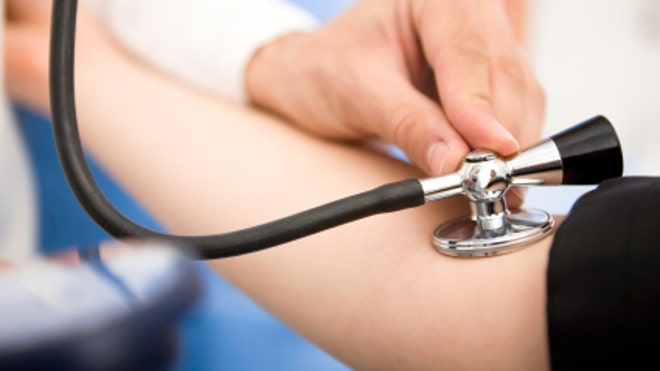 One has to wonder, based on recent statistics, whether the evolution of mankind might be reversing itself. These are the five reasons why our youth may not be as lucky as the generation ahead of them.
One has to wonder, based on recent statistics, whether the evolution of mankind might be reversing itself. These are the five reasons why our youth may not be as lucky as the generation ahead of them.
1. Cars are still a leading killer.
For people ages 5 to 34, motor vehicle accidents are still the leading cause of death, claiming over 18,000 lives per year. When you superimpose the effects of alcohol on driving, the statistics get even worse.
While safety standards have become more stringent every year, especially for younger drivers, the risk of using a phone or texting while driving is a major hazard for our youth that didn’t exist 10 years ago.
While many car manufacturers, such as General Motors, have now implemented solutions such as vocal Facebook for your car, the number of distractions that teens and other young people have while driving has only increased. With the onslaught of new “super gadgets,” the distractions will get even worse.
2. Drowning in alcohol and drugs
According to a recent survey funded by the US Department of Education, 81 percent of students used alcohol in the previous year. Furthermore, 62 percent of underage students consumed alcohol in the previous 30 days. The even more startling statistic is that 44 percent of students reported binge drinking during the previous 2 weeks.
The implications of alcohol among high school and college students is further worsening the mortality risk of these individuals by not only putting them in jeopardy for accidents, but also other health conditions related to depression and other risky behavior.
Colleges across the country are challenged by the enormous rise in alcohol consumption, which is impacting the well-being of the youth, often outside the purview of any supervising adult.
The use of drugs, in addition to alcohol, is another compounding factor for morbidity. The 30-day prevalence of amphetamines was as much as 5 percent and for marijuana as much as 16 percent. In an environment where stress and anxiety are rampant, and over 40 percent of college students are on some kind of medication, the number of students using alcohol and drugs is worrisome. The same survey respondents revealed that 82 percent of them viewed drinking as the central focus of their social life.
3. Battling the bulge
Rising rates of obesity are reaching epidemic levels. September, in fact, has been dedicated to building awareness for childhood obesity.
Over the past several decades, more than 23 million children and teenagers have become obese or overweight, which is about one in three kids. These children are at risk for developing heart disease, diabetes and stroke – in addition to suffering the social consequences of being overweight.
The social environment in which many children are raised is impacting the nutrition and habits of our youth. Undoubtedly, the demands and stresses of the current environment have made it more convenient for children to consume food that is high in calories and poor in nutritional content.
The movement among schools to improve the nutritional value of food and beverages available to children is a positive step in the right direction, but the rate at which the obesity epidemic is growing requires a much more aggressive push by parents, schools, colleges, manufacturers and many others to ensure that we break this trend quickly.
4. Kids need a heart
A recent report by the CBC revealed that while fewer people in the US are succumbing to cardiovascular disease most of the improvement was in the elderly population as opposed to the youth. The fact that the rates of decline were lower for older adults than younger ones is truly worrisome.
A major risk factor for heart disease is smoking. Recent reports suggest that 21 to 25 percent of younger adults smoke, in comparison with 10 percent of the elderly.
Some suggest that the reason for this increase in the prevalence of heart disease is because young adults who lack insurance have not obtained the necessary screening or treatment. It will be interesting to study the impact of recent changes resulting from ObamaCare, to see if this trend reverses as younger people are encouraged to purchase insurance.
Again, the impact of obesity and diet as contributing factors to the development of hypertension and diabetes will require a more aggressive approach to ensure that the rate of heart disease improves over the next few decades.
5. Down in the Dumps
The impact of mental health issues on adolescents has significant undertones to all of the previous four issues. The number of children who experience some sort of anxiety or depression is rising, as well, at a staggering rate.
The reason for this rise may be because we are better at diagnosing the condition or because there are truly more environmental and circumstantial factors that push our kids over the edge.
An interesting analysis of parents who discipline their teenagers with hostile screaming and cursing revealed that many of these children go on to develop significant behavior issues, some violent, later in life.
Many of the unfortunate tragedies and mass killings that have occurred recently have a common theme: an individual who has been suffering from some form of mental illness goes on a rampage to take innocent lives. While homicide and suicide remain at the top of the list of causes of death among the young, one has to really wonder the impact of mental health issues in contributing to these statistics.
The influence of social media on the pressures of current youth cannot be underestimated either. There have been many reports that question whether Facebook is doing more harm than good, and whether it has undermined the ability for adolescents to adequately communicate with each other.
Twenty years ago, the incidents of obesity, alcohol, drugs, depression were not as prevalent. As a society, the future of our youth is truly at risk and many of these issues are interrelated. How we address them will determine whether our kids will really live longer than their parents
Read more: http://www.foxnews.com/health/2013/09/05/five-reasons-why-may-outlive-our-kids/#ixzz2e5uLz6M8







